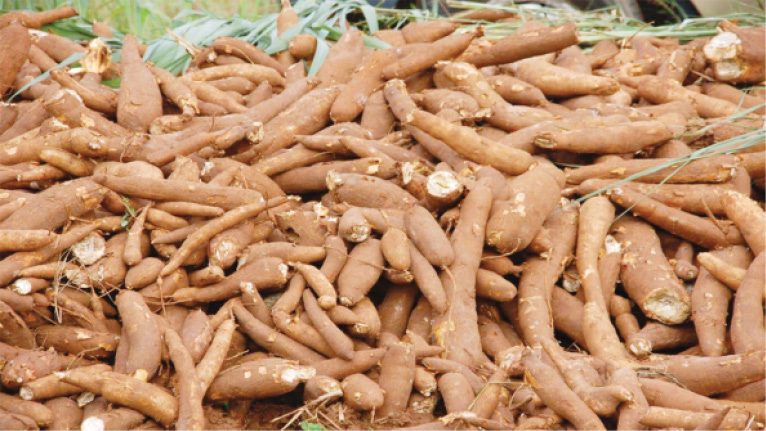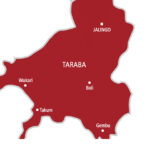In Benue State, farmers are expanding their fields almost every season to increase production as cassava farming becomes a thriving business in all the three senatorial districts.
Although the state is largely known as the highest producer and consumer of yam in the country, cassava consumption now gradually reigns. As such, more farmers are said to be cultivating cassava.
- What next after CBN’s intervention in poultry sector?
- There’s upsurge in paediatric cancer – Minister
A cassava farmer in the Gboko area of the state, Titus Atondo, said he started cultivating the crop for many years now.
Atondo said cassava farming posed little or no challenge because farmers only need to spray the farm once to repel weed, then wait for harvest.
“Cassava chips are very expensive now. I have a large cassava farm where I make money and my family consumes some of the produce,’’ he said.
Faith Ben is now preparing a large expanse of land in the Ugboju area of Otukpo Local Government Area to cultivate cassava as soon as the rain begins, following the high demand of the by-product in her vicinity.
“The demand for cassava is usually high these days. From the tubers to the processed produce, it has become a money-spinning crop. That’s why I am going into the farming. And I am doing so purely for business,’’ she added.
On his part, the state chairman of the All Farmers Association of Nigeria (AFAN), Aondongu Saaku, admitted that cassava consumption in the state had become more than yam in recent times.
Saaku said this is because cassava is eaten in varieties, unlike yam.
Meanwhile, the Director of Agric Science in the Ministry of Agriculture and Natural Resources, Thomas Unongo, explained that cassava farming has been thriving in the state in recent times because no aspect of the crop is wasted.
Unongo, whose farm occupies three and a half hectares in Apir, Makurdi, said that for the past two years, he had been cultivating the land with new varieties of cassava released by the International Institute of Tropical Agriculture (IITA).
“Apart from weed control, it is one of the cheapest crops to grow. Rice production costs between N200,000 and N300,000 per hectare, while yam costs between N150,000 and N200,000 per hectare, but inputs for cassava production for farmers with stems cost only about N150,000. And where there is light vegetation, it could be as low as N100,000. It is really cheap and the output/return on investment is one of the highest in Benue now,’’ he said.
Unongo further noted that the challenges of farming cassava in the state hinged on insecurity as herders’ attacks worsened. He alleged that herders usually removed the stems and tubers for their cattle.
He, however, advised that to get a better yield, one would have to apply weed control three months after planting, stressing that when weeds are allowed to grow in the farm, they invite pests, such as grasshoppers.
He said inputs like fertiliser, herbicides, among others, are necessary, adding that there’s the need to observe farm sanitation, which would help against attacks by rodents.
Unongo maintained that while the conventional old varieties of cassava would last up to two years before harvest, with one-year maturity, the new improved varieties have a maturity period of five and seven months; but the eight months are superb for harvest.
“Cassava farming is turning to gold in Benue because the state is nearer to the North, where the crop is not produced. Also, the produce, especially garri, is becoming costlier because vendors are everywhere in villages mopping up the chips desired more for the Northern market,’’ he noted.

 Join Daily Trust WhatsApp Community For Quick Access To News and Happenings Around You.
Join Daily Trust WhatsApp Community For Quick Access To News and Happenings Around You.


